The materials in this study included the Parent–Child Relationship Inventory (PCRI;Further, poor quality interactions among parents and children may lead to developmental problems and mental health issues (Letourneau, Drummond, Fleming, Kysela, McDonald, & Stewart, 01) Further, previous studies suggest a strong association between the parentchild relationship and children's mental healthParentChild Relationship Inventory (PCRI) The statements below describe different ways some parents feel about their children For each statement, decide how you feel If you strongly agree, select the 1 next to that statement number If you agree, select the 2 If you disagree, select the 3 If you strongly disagree, select the 4 Please make sure that you are selecting the correct response

Impact Of Parenting Practices On Parent Child Relationships In Children With Specific Learning Disability Karande S Kuril S J Postgrad Med
Parent child relationship inventory
Parent child relationship inventory-ParentChild Relationship Inventory Term Paper Pages 5 (1572 words) Bibliography Sources 5 File docx Level Master's Topic Children ParentChild Relationship Inventory The need for an effective assessment of parenting is evident inRelationship 1 spouse 2 child 3 parent 4 other How often do the two of you Never 1 Seldom 2 Sometimes 3 Fairly often 4 ____ Parents usually can be relied upon to keep their promises Inventory of Socially Supportive Behaviors 325




Identification Of Child Maltreatment With The Parent Child Conflict Tactics Scales Development And Psychometric Data For A National Sample Of American Parents Sciencedirect
Abstract Psychometric properties of the ParentChild Relationship Inventory (PCRI) were examined using data collected from adolescents and their parents in the Fullerton Longitudinal Study Results revealed acceptable internal consistency for most scales and moderate to high 1year stability for all scales Both parents' PCRI scores correlated with their views of family climate Object Relationships these are the parent/child relationships established as a foundation to vROps Users can create them manually via the vROps UI Inventory Trees (Traversal Specs) these are the routes taken between objects with defined relationships They are found in the Environment tab and can be used by constructs like Views and WidgetsParentChild Relationship Inventory (PCRI) The ParentChild Relationship Inventory (PCRI) is a 78item selfreport instrument designed to measure mothers' and fathers' perceptions of their relationship with an individual child and their attitudes about being parents
ParentChild Relationship Inventory ParentChild Relationship Inventory Share Resource Type Instruments Author(s) Gerard Anthony B Publisher(s) Western Psychological Services Date Issued 1994 Alternative Title PCRI Source Los Angeles Western Psychological ServicesSoftware Scoring Designed for use with mothers or fathers of 3 to 15yearold children, the ParentChild Relationship Inventory (PCRI) gives you a clear, quantified description of the parentchild relationshipThe ParentChild Relationship Inventory (PCRI) assesses parents' attitudes toward parenting and toward their children The PCRI yields a quantified description of the parentchild relationship that complements other assessment procedures used in clinical evaluations of children and families Rather than replacing qualitative evaluation of parentchild interactions, the PCRI helps
The ParentChild Relationship Inventory (PCRI) is an instrument for parents to assess their relationship with their children The instrument, which contains 78 items, has been standardized on over 1,100 parents in the United States The PCRI can be completed in 15 to minutes "Parentandadultchild couples for whom procreation is either virtually or literally impossible can aspire to the transcendent purposes of marriage and seek fulfillment inPurpose To assess parent attitudes toward parenting and their child Age 315 years Time 15 minutes Administration Individual and group Format Hardcopy;




Impact Of Parenting Practices On Parent Child Relationships In Children With Specific Learning Disability Karande S Kuril S J Postgrad Med




Pdf Parent Child Relationship Of Teenagers Ijip Journal Academia Edu
The tenth edition of Parent–Child Relations has been dramatically restructured and extensively revised About 80% of the material was entirely rewritten, and a new test bank was created The chapters were reconceived The three sections highlight the context, the developmental process, and the challenges of parent–child relations The ParentChild Relationship is one that nurtures the physical, emotional and social development of the child It is a unique bond that every child and parent will can enjoy and nurture This relationship lays the foundation for the child's personality, life choices and overall behaviour It can also affect the strength of their social Assessment in counseling is strengthened when research exists to demonstrate the psychometric strength of scores from a particular instrument across samples This study presents a psychometric synt




Transparent Parent And Child Png Parent Child Relationship Questionnaire Png Download Transparent Png Image Pngitem




The Parent Adult Child Relationship Questionnaire Docsbay
Dimensions Questionnaire The quality of the parentchild relationship was assessed using the ParentChild Relationship Inventory The results of this study indicated that all parenting factors examined were significant predictors of the parentchild relationship quality Age of the child was not a predictor These findings have positive socialPsychometric properties of the ParentChild Relationship Inventory (PCRI) were examined using data collected from adolescents and their parents in the Fullerton Longitudinal Study Results revealed acceptable internal consistency for most scales and moderate to high 1year stability for all scales Both parents' PCRI scores correlated with their views of family climateParent – Child Relationship Inventory (PCRI) This unique selfreport inventory tells you how parents view the task of parenting and how they feel about their children Designed for use with mothers or fathers of 3 to 15yearold children, the PCRI gives you a clear, quantified description of the parentchild relationship




Validation Of The Mothers Object Relations Scales In 2 4 Year Old Children And Comparison With The Child Parent Relationship Scale Topic Of Research Paper In Psychology Download Scholarly Article Pdf And Read
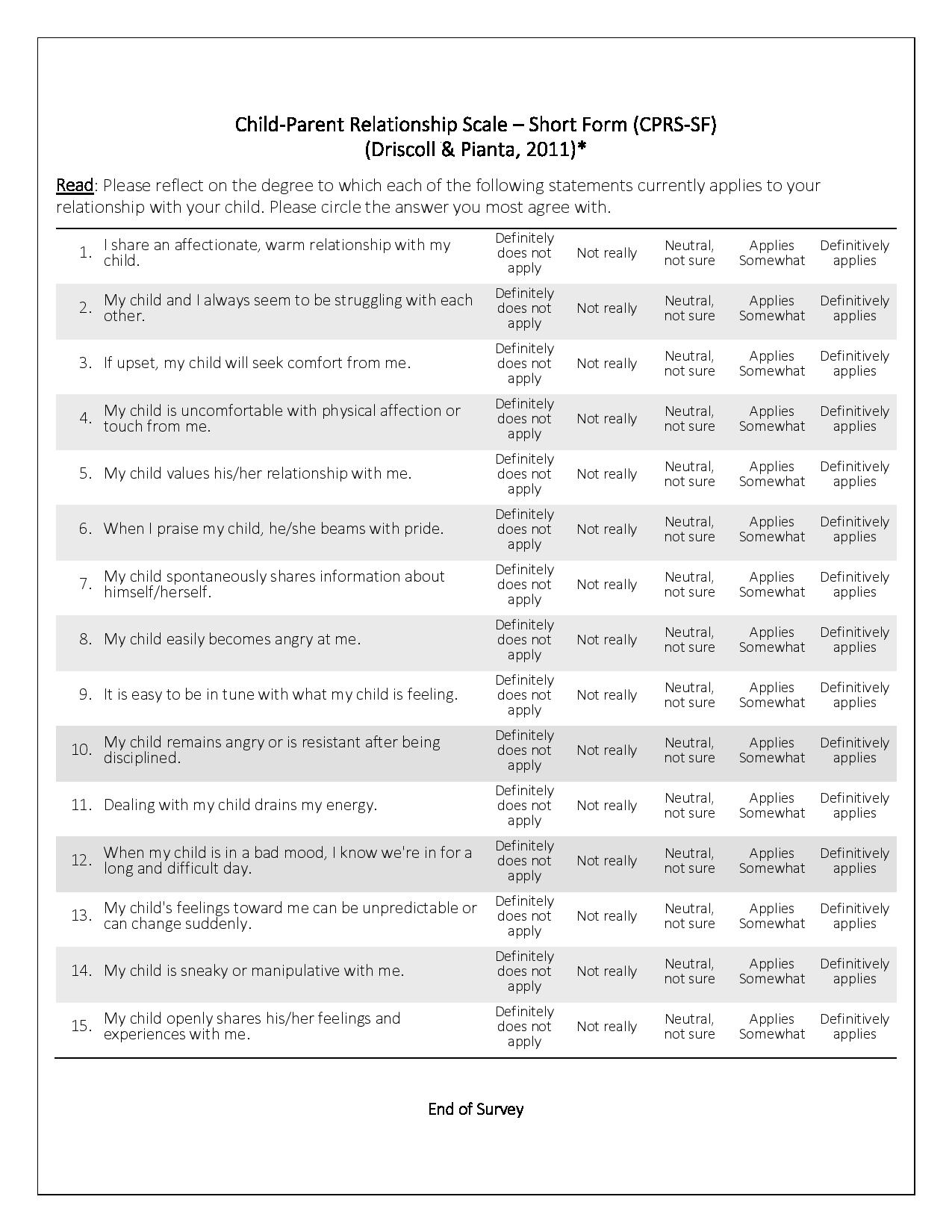



Frpn Measurement Resources Fatherhood Research And Practice Network
This unique selfreport inventory tells you how parents view the task of parenting and how they feel about their children Designed for use with mothers or fathers of 3 to 15yearold children, the PCRI gives you a clear, quantified description of the parentchild relationship And it identifies specific areas in which problems may occurQuality of relationships between parents and children were evaluated with a parent selfreport measure, the Parent Child Relationship Inventory (Gerard in ParentChild Relationship Inventory (PCRI) manual WPS, Los Angeles, 1994)Of the parent–child relationship measures, the most commonly used measures were the PSI and the Child Abuse Potential Inventory Table 2 displays the parental practices and discipline measures These measures assess interactional patterns of behaviours, including



1



2
Since the variation for color exists within the Beauty category, you must establish a parentchild relationship for each color variation of your lipstick product inventory so long as no other feature (such as brand) is different between the products The Beauty category does not support fragrance variations because in certain circumstances theParentChild Relationship Inventory $1500 Availability Test Review Available for Download Note that what you are purchasing is a test review These reviews are descriptions and evaluations of the tests, not the actual tests themselves To purchase the actual test materials, you will need to contact the test publisher(s)ParentChild Relationship Questionnaire myParentQuestcom Background Help give parents a second chance before they need it We all start with the best of intentions, but during the course of life, we tend to get sidetracked At myParentQuestcom, we are in the business of recognizing problems and trying to prevent them before they happen
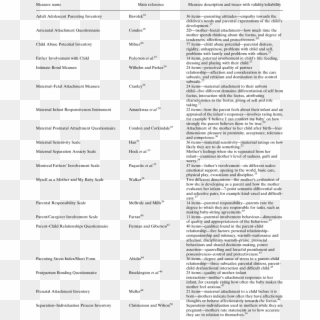



Free Questionnaire Png Png Transparent Images Pikpng




Factor Structure Of The Chinese Version Of The Parent Adult Child Relationship Questionnaire Semantic Scholar
Children have the right to be heard both in public and within the family Save the Children promotes "positive parenting" With this Guide to Building Healthy ParentChild Relationships, Save the Children aims to make parents aware of the importance of positive approaches to interacting with their children that take into account childrensGerard, A B (1994) ParentChild Relationship Inventory (PCRI) Manual Los Angeles, WPS Western Psychological Services 131 Wilshire Blvd Los Angeles, CA Phone Fax help@wpspublishcom wwwwpspublishcom $170 Yes The PCRI is a parent selfreport measure of parenting skill and36 3&5, 7(67 5(3257 ,' 3d j h rwkhu vfdohv hfhhg 7 kh kdv dwwlwxghv wkdw pd\ frpshqvdwh iru duhdv ri gliilfxow\ 3duhqwdo 6xssruw 7krvh zkr shufhlyh




Pcri Manual Chapter 1 Pdf Pcri Manual Cover Layout 1 3 35 Pm Page 1 Parent Child Relat Ionship Inventory Pcri Manual Anthony B Gerard Ph D Course Hero



Anubooks Com
If the item has a child item, when its retail is taken to inventory, it automatically equals to the total retail of its child items There are two ways to set up the parentchild relationship between items Create a parentchild relationship between items (manual way)Gerard, Reference Gerard 02) The PCRI is a 78item, selfreport questionnaire that assesses parents' attitude toward their children and toward parentingThe ChildParent Relationship Scale (CPRS) is an instrument developed at University of Virginia's Curry School of Education and Human Development that assesses parents' views of their relationship with their child Created by Dr Robert Pianta, PhD, the instrument consists of 30 items There is also a short form with 15 items available




Vivienne S Individual Blog Religion And Parent Child Relationship Questionnaire



Children With Autism In Taiwan And The United States Parental Stress Parent Child Relationships And The Reliability Of A Child Development Inventory Page 72 Unt Digital Library
Parents at these same time points to assess whether the skills and knowledge parents have gained translate into improvements in their children's behavior and interactions at home and/or school Aspects of the parentchild relationship are also examined Evaluation design The evaluation employs a quasiexperimental design, including aPCRI ParentChild Relationship Inventory The PCRI is a parent selfreport measure of parenting skill and attitudes toward parenting and towards their children The measure yields scores on 7 content scales 1) Parental Support, 2) Satisfaction with Parenting, 3) Involvement, 4) Communication, 5) Limit Setting, 6) Autonomy, and 7) Role OrientationDesigned to evaluate the magnitude of stress in the parent–child system, the fourth edition of the popular PSI is a 1item inventory that focuses on three major domains of stress child characteristics, parent characteristics, and situational/demographic life stress A 36item screening form is also available!



1



Parent Child Relationship Inventory
E–7 A RESOURCE FOR EVALUATING CHILD ADVOCACY CENTERS Child Anxiety Scale—Parent Form (Beauchamp, Tewksbury, and Sanford 1997) Please answer the following questions about how you think your child has been feeling since he or she told you about the abuseEach question has a score from 1 – 5 To establish the mean, divide the sum by the number of questions in that section Conflicts 2 seem to be struggling with each other 12 easily becomes angry with meParentChild Relationship Inventory (PCRI) Key information Provides a clear picture of how parents feel about their children and the task of parenting




Measuring The Parent Child Relationship Ppt Video Online Download




Development And Initial Validation Of The Parent Behavior Inventory
The Pianta ChildParent Relationship Scale (CPRS) is a selfreport instrument completed by mothers and fathers that assesses parents' perceptions of their relationships with their sons and daughters It is very widely used selfreport instrument and taps into both positive and negative aspects of the parentchild relationship "Demographic information form" and "Child Parent Relationship Inventory" were used as data collection tools in the study In the analysis of the data, frequency, percentage, standard deviation, ttest and oneway variance analysis (OneWay Anova) statistical techniques were used In conclusion, as the result of the study conducted to The Parent–Child Relationship Inventory (PCRI) is one of the most used instruments in child custody contexts, and it is also designed for clinical and research usages This study aimed to initially analyze the psychometric properties of the Hebrew form of the PCRI in an Israeli sample of mothers and fathers




Using Psychological Testing In Child Custody Evaluations Lepage
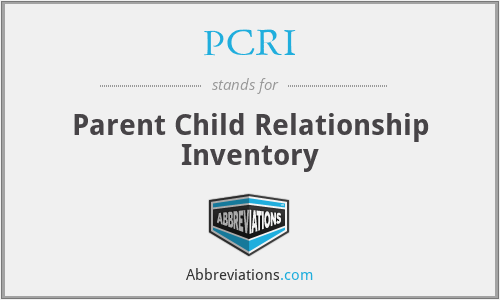



Pcri Parent Child Relationship Inventory
CHILDPARENT RELATIONSHIP SCALE Scoring Guide Sum the items as noted;They go into Child mode and the temptation for the manager to be Parental can be overwhelming On the other hand, the relationship below, right, exemplifies a "crossed transaction" where, for example, the manager attempts to maintain an AdultAdult relationship in the face of the team member's Child position The ParentChild Relationship Inventory for the assessment of German parents Abstract The seven content scales of the ParentChild Relationsship Inventory (PCRI) are supposed to measure aspects of the relationship between parents and their children from the perspective of parents who seek custody




Impact Of Parent Child Relationship On Career Maturity Of The Adolescents Of Kolkata By International Educational Scientific Research Journal Issuu



Family Interaction Relationship Types And Differences In Parent Child Interactions Document Gale Academic Onefile
This inventory consist 150 items Provides acceptance, avoidance and concentration scores of adolescents towards their parents For Intermediate students 1349TR(1 set includes 100 consumable booklets and manual) Parent Child Relationship Scale by P Nalini Rao (Hindi/English)ParentChild Relationship Inventory Manual Los Angeles Western Psychological Services Haskett, M (1990) Social problemsolving skills of young physically abused children Child Psychiatry and Human Development, 21, Hansen, D J, DeRoma, V, & Sedlar, G (00) Manual for the Parental Anger Inventory University of NebraskaLincoln



Direct And Indirect Effects Of Parenting Style With Child Temperament Parent Child Relationship And Family Functioning On Child Social Competence In The Chinese Culture Testing The Latent Models Page Xv Unt



What Does Pcrq Mean Definition Of Pcrq Pcrq Stands For Parent Child Relationship Questionnaire By Acronymsandslang Com



Reviewing Parent Child Information Step 4




Parent Adolescent Relationship Questionnaire Parq Par



Parent Child Relationship And Smoking Among College Students Role Of Parents In Females And Males Smoking Behavior Practice In Clinical Psychology



Children With Autism In Taiwan And The United States Parental Stress Parent Child Relationships And The Reliability Of A Child Development Inventory Page Unt Digital Library




Pcri Parent Child Relationship Inventory Autoscore Answer Sheet Pack Of 25 Ebay



1



Pcri Parent Child Relationship Inventory By Acronymsandslang Com




Development Of The Parent Adult Relationship Questionnaire Parq Pdf Free Download




The Effectiveness Of Transactional Analysis On Parent Child Relationship In Mothers Of Children With Oppositional Defiant Disorder Avicenna Journal Of Neuro Psycho Physiology




Questionnaire Measures Of The Parent Child Relationship Download Table



2




Table 1 From Parent Child Relationships In Children Presenting With Somatic Complaints A Comparative Study Semantic Scholar
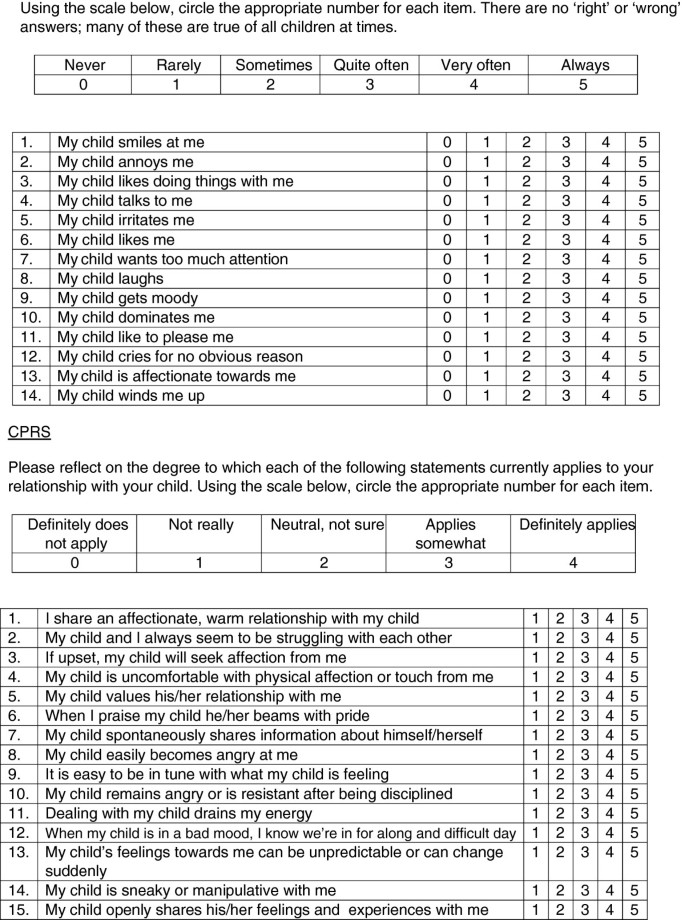



Validation Of The Mothers Object Relations Scales In 2 4 Year Old Children And Comparison With The Child Parent Relationship Scale Health And Quality Of Life Outcomes Full Text
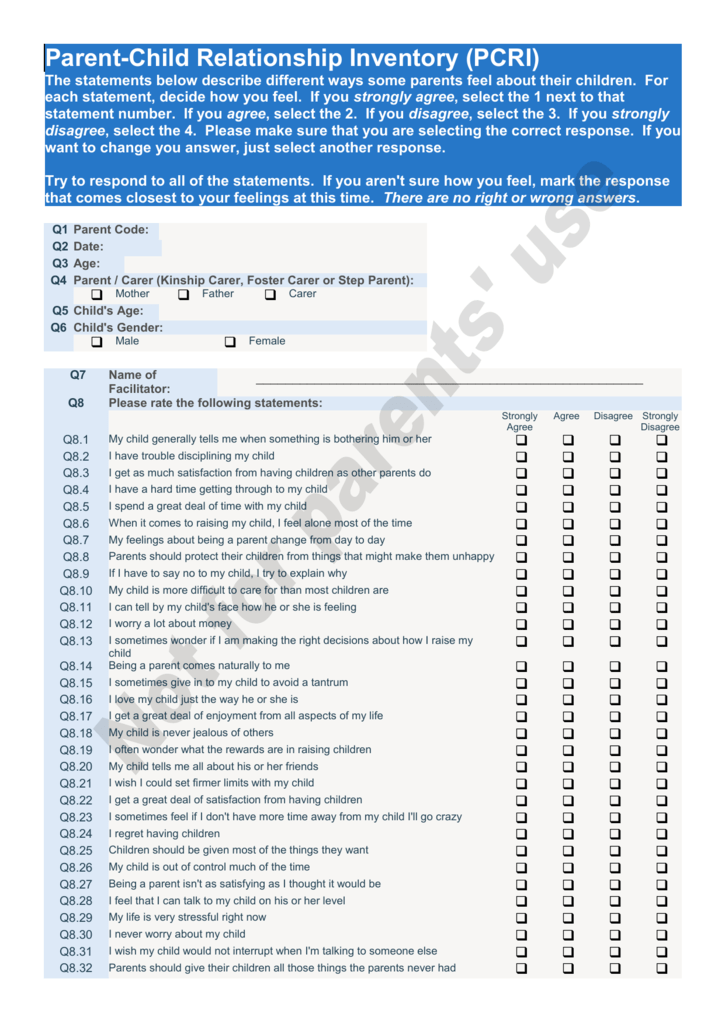



Parent Child Relationship Inventory Questionnaire




Child Parent Relationship Scale Pdf



2
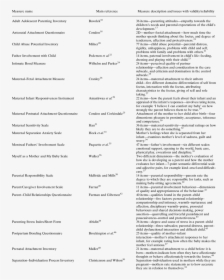



Parent Child Png Images Transparent Parent Child Image Download Pngitem




Summary Of Subscale Results In The Parent Child Relationship Questionnaire Download Table




Pdf Development Of The Parent Adult Relationship Questionnaire Parq Semantic Scholar
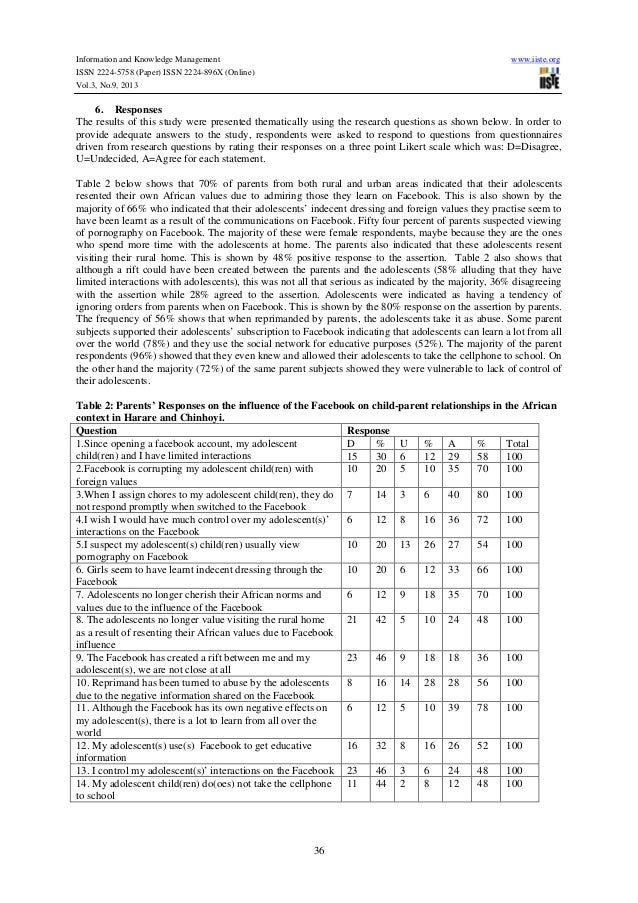



Impact Of The Facebook On Parent Child Relationship In The African Co




Psychosocial Effects Of Parent Child Book Reading Interventions A Meta Analysis American Academy Of Pediatrics



2




Products Psych Systems And Innovation Inc




Questionnaire Measures Of The Parent Child Relationship Download Table
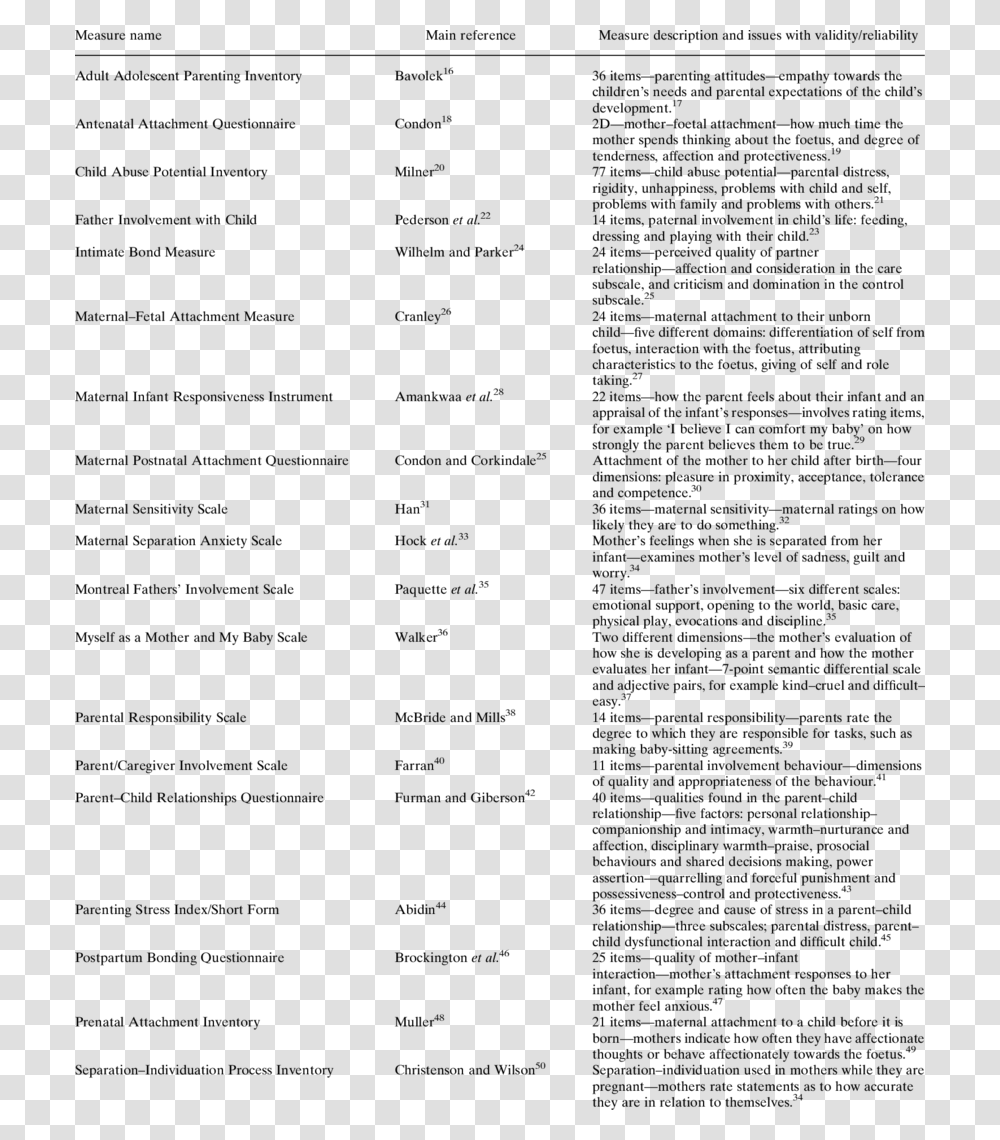



Parent And Child Parent Child Relationship Questionnaire Menu Poster Advertisement Transparent Png Pngset Com



Retrospective Perception Of Parent Child Relationships As A Function Of Achievement Level Page 30 Unt Digital Library
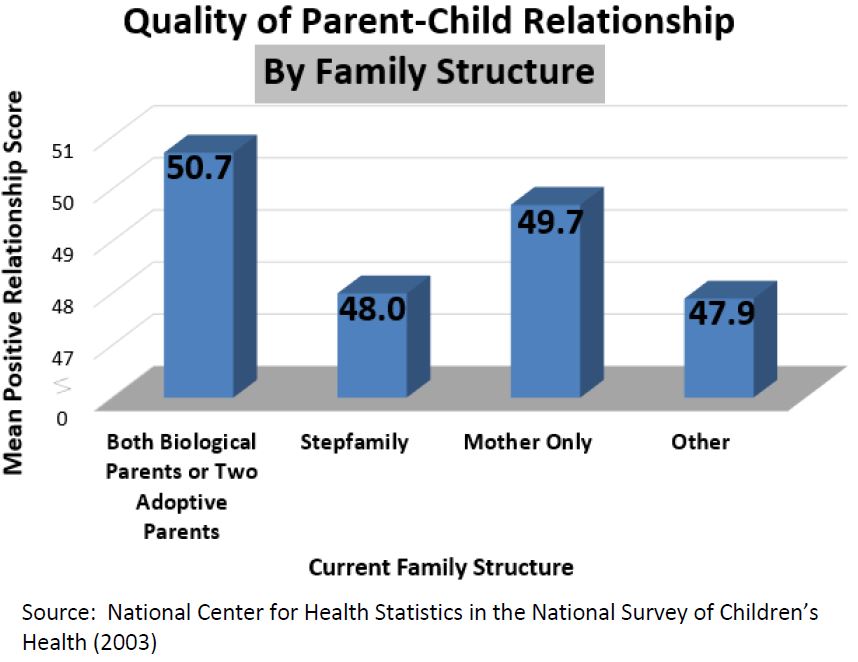



Quality Of Parent Child Relationship




Parenting Relationship Questionnaire Prq Pearson Assessment




Impact Of Parenting Practices On Parent Child Relationships In Children With Specific Learning Disability Karande S Kuril S J Postgrad Med



Pcrs Parent Child Relationship Scale By Acronymsandslang Com
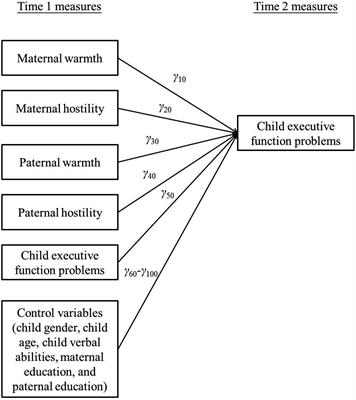



Frontiers Parental Warmth And Hostility And Child Executive Function Problems A Longitudinal Study Of Chinese Families Psychology



Questionnaire For Parent Child Relationships In Our Home




Pdf Validation Of The Mothers Object Relations Scales In 2 4 Year Old Children And Comparison With The Child Parent Relationship Scale Semantic Scholar




Measuring The Parent Child Relationship Ppt Video Online Download



Plos One Depression Among Migrant And Left Behind Children In China In Relation To The Quality Of Parent Child And Teacher Child Relationships



Journals Sagepub Com




Parents And Children Relation Berel




Child Parent Relationship Scale Robert C Pianta Child Age Pdf



Children With Autism In Taiwan And The United States Parental Stress Parent Child Relationships And The Reliability Of A Child Development Inventory Page 87 Unt Digital Library



2




Impact Of Parenting Practices On Parent Child Relationships In Children With Specific Learning Disability Karande S Kuril S J Postgrad Med




Parenting Relationship Questionnaire Prq Pearson Assessment




Pdf The Parent Caregiver Relationship Scale A Measure Of The Adult Relationship In Infant Child Care



Exploring The Relation Of Harsh Parental Discipline With Child Emotional And Behavioral Problems By Using Multiple Informants The Generation R Study




Pcri Parent Child Relationship Inventory




Pdf The Parent Adolescent Relationship Scale



2




Pdf Factor Structure Of The Chinese Version Of The Parent Adult Child Relationship Questionnaire




Table 1 From Parent Child Relationships In Children Presenting With Somatic Complaints A Comparative Study Semantic Scholar




Pdf Translation And Validation Of The Chinese Version Of Parent Child Relationship Inventory Pcri C In Hong Kong
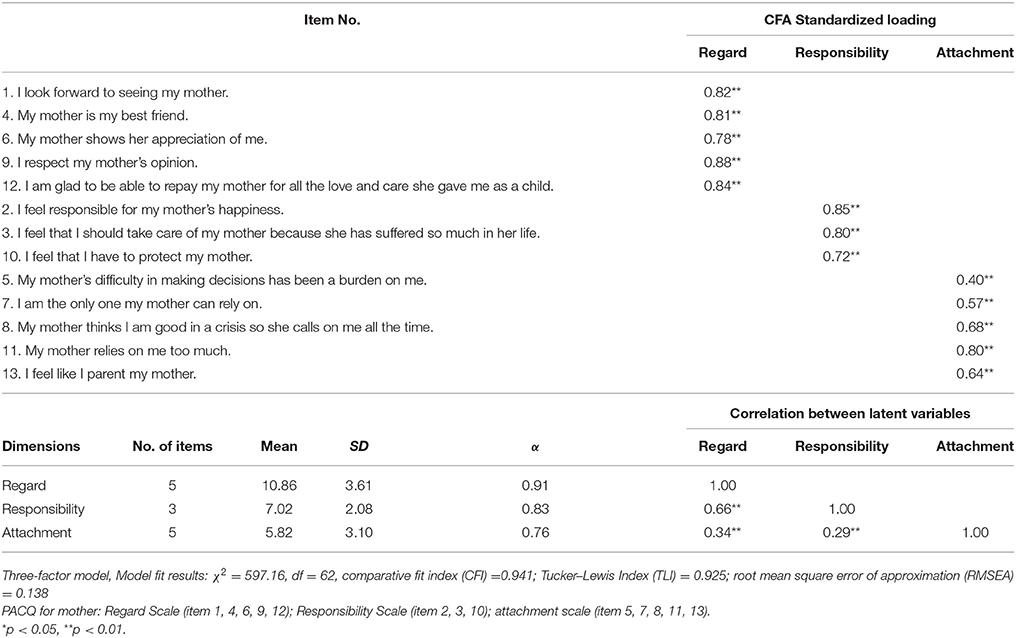



Frontiers Factor Structure Of The Chinese Version Of The Parent Adult Child Relationship Questionnaire Psychology



2




Quality Of Parent Child Relationship As Measured By The Crowell Download Table




Parent Child Relationship Associated With The Development Of Borderline Personality Disorder A Systematic Review Boucher 17 Personality And Mental Health Wiley Online Library
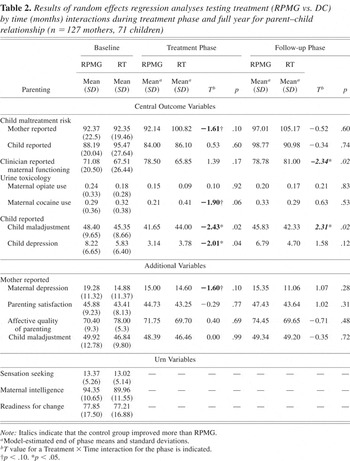



Relational Psychotherapy Mothers Group A Randomized Clinical Trial For Substance Abusing Mothers Development And Psychopathology Cambridge Core




Expanding Your Assessment Toolbox Bradley Jackson Ph D The Children S Hospital Aurora Co Robert Stadolnik Ed D Firepsych Inc Brandon School Medway Ppt Download
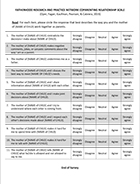



Frpn Measurement Resources Fatherhood Research And Practice Network
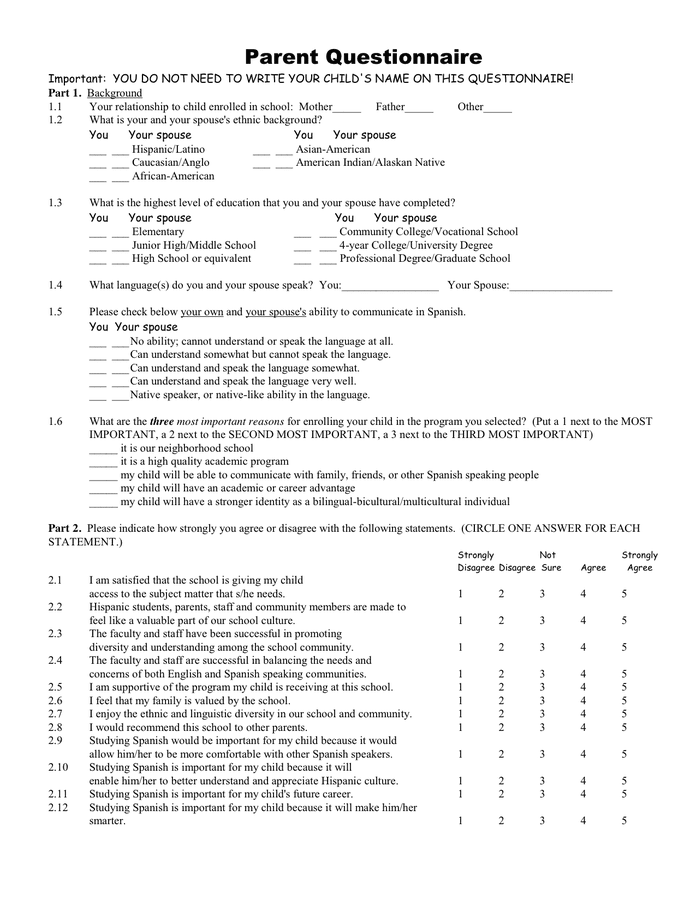



Parent Questionnaire In Word And Pdf Formats



Basc 3 Prq Basc 3 Parenting Relationship Questionnaire




Questionnaire Measures Of The Parent Child Relationship Parent Child Relationship Questionnaire Clipart Pikpng




Identification Of Child Maltreatment With The Parent Child Conflict Tactics Scales Development And Psychometric Data For A National Sample Of American Parents Sciencedirect




Parent Child Relationships Setting Up A New Employee Video Solarwinds




Understanding Parent Child Asins And Variations On Amazon Feedvisor



2



2




The Association Between Parent Child Relationship And Child Loneliness Semantic Scholar
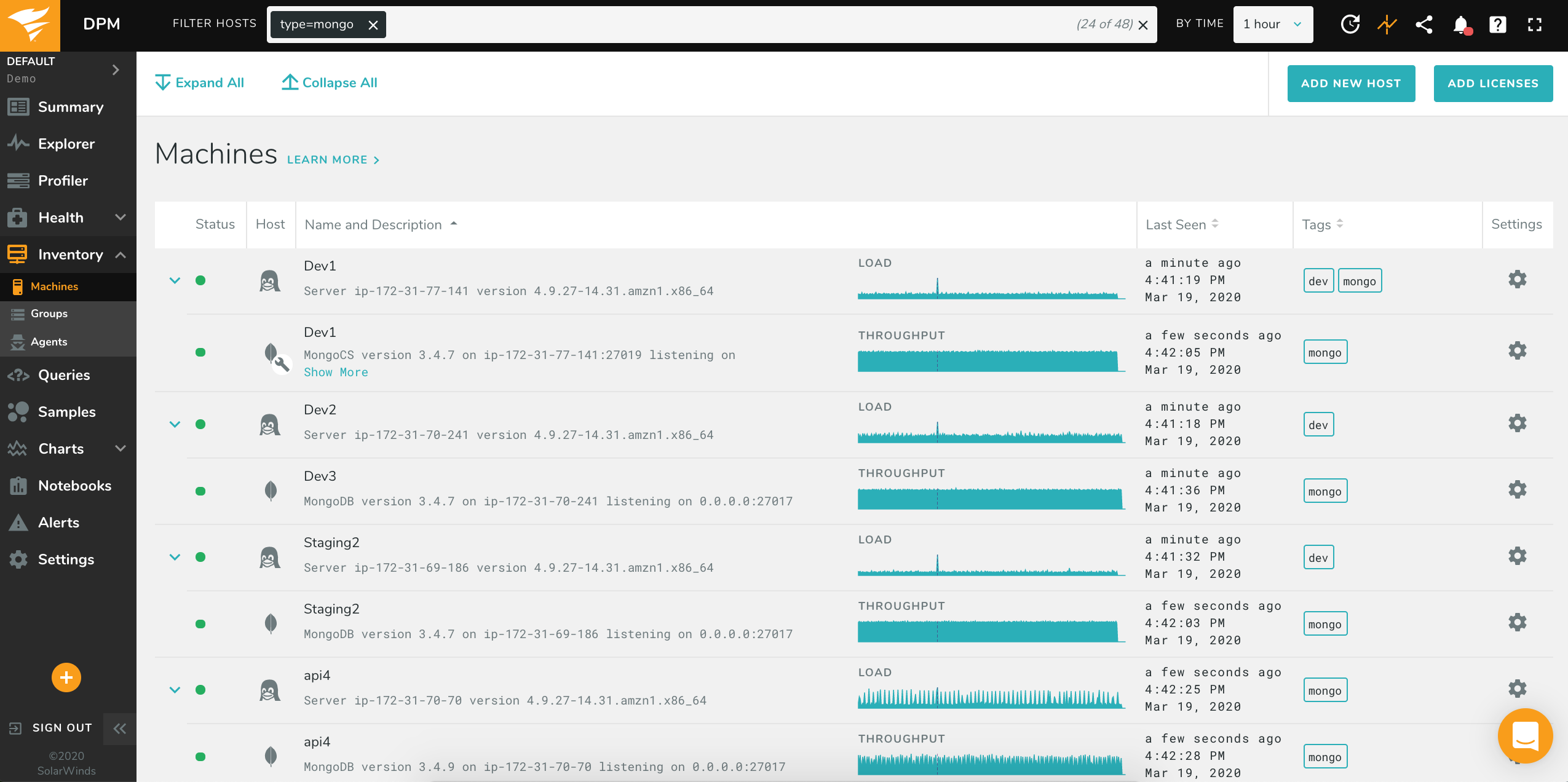



Inventory Vividcortex



Plos One Child Parent Interactions In American And Turkish Families Examining Measurement Invariance Analysis Of Child Parent Relationship Scale




Pdf Assessing The Quality Of The Parent Child Relationship Validity And Reliability Of The Child Parent Relationship Test Chip C




Marital Satisfaction And The Development Of Autonomy And
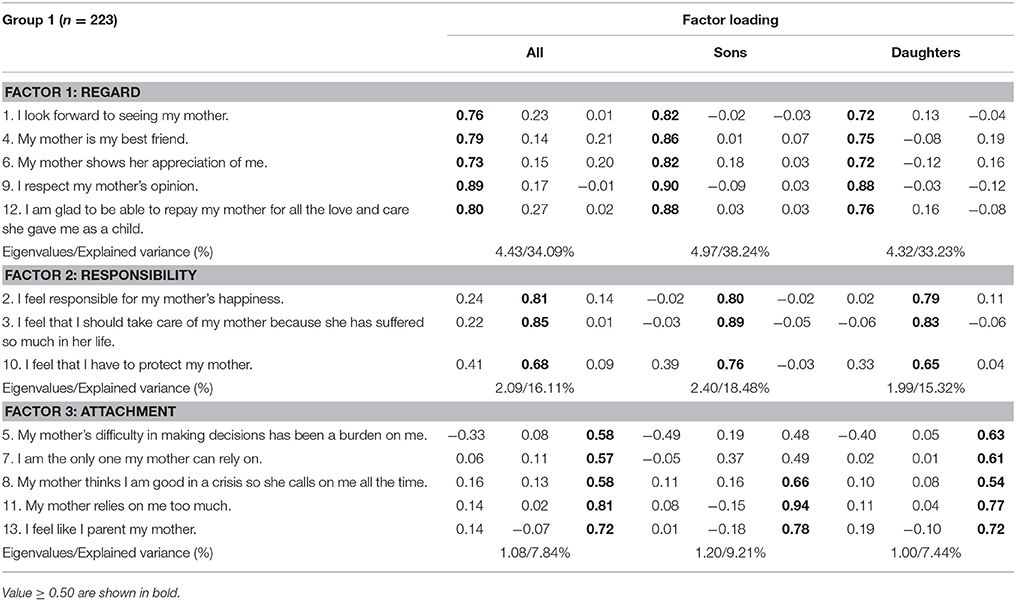



Frontiers Factor Structure Of The Chinese Version Of The Parent Adult Child Relationship Questionnaire Psychology
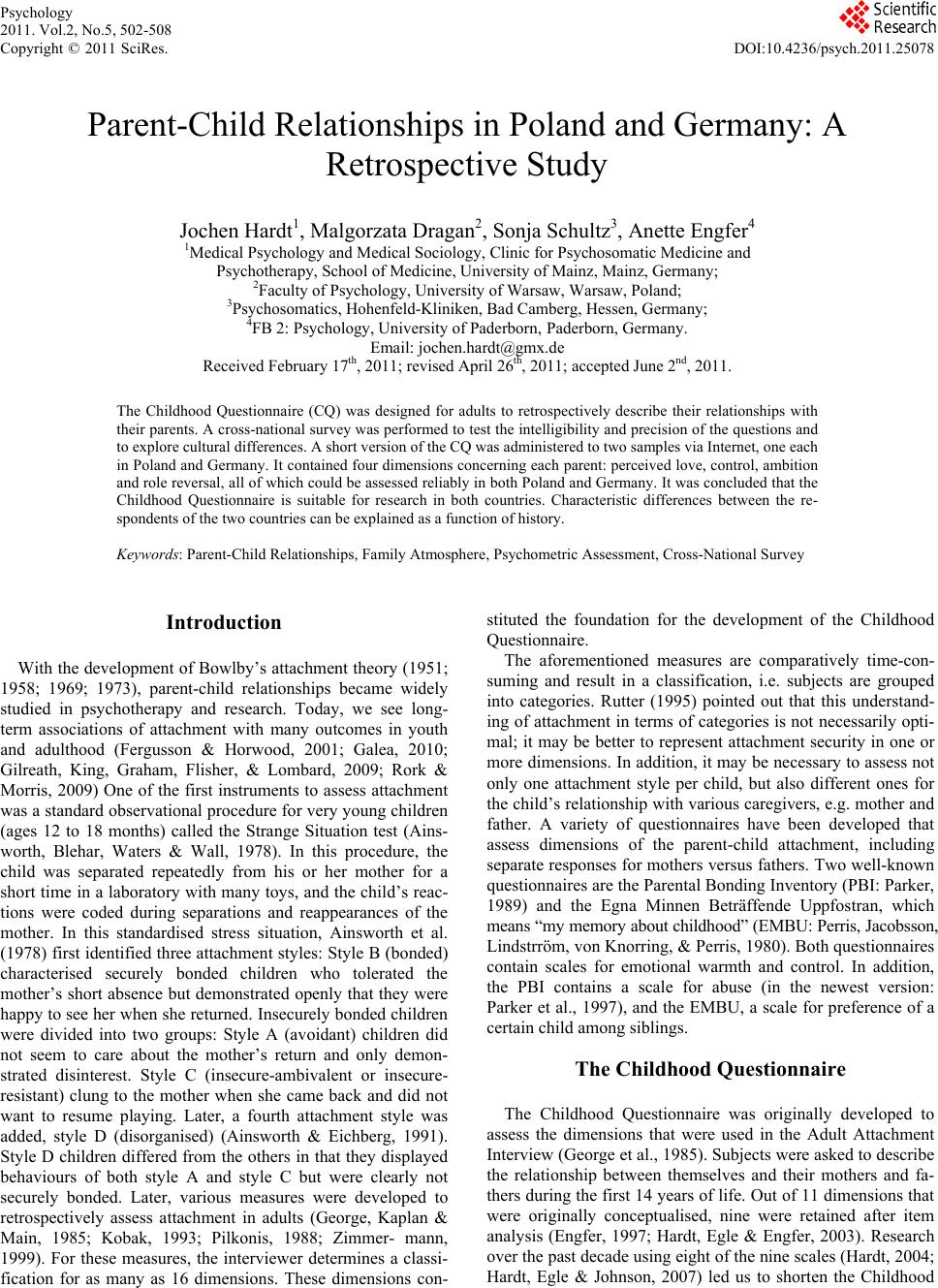



Parent Child Relationships In Poland And Germany A Retrospective Study




Parent Child Relationship Inventory Pcri




Psi 4 Parenting Stress Index Fourth Edition




Pdf Development Of The Parent Adult Relationship Questionnaire Parq Semantic Scholar
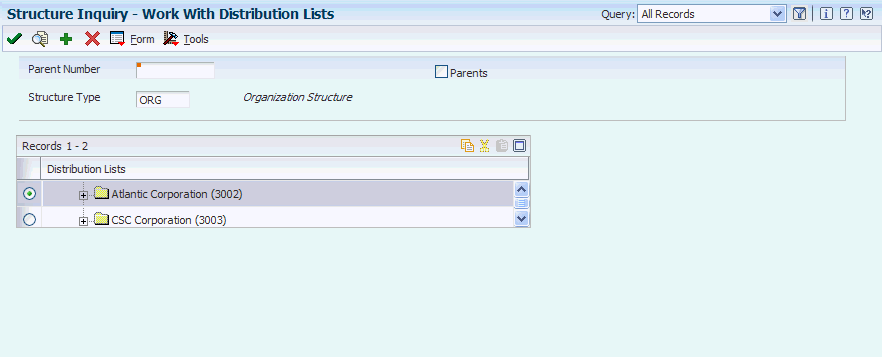



Setting Up Parent Child Relationships And Organizational Structures
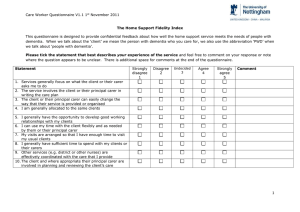



Parent Child Relationship Inventory Questionnaire



Parent Questionnaire Printable




Summary Of Subscale Results In The Parent Child Relationship Download Table
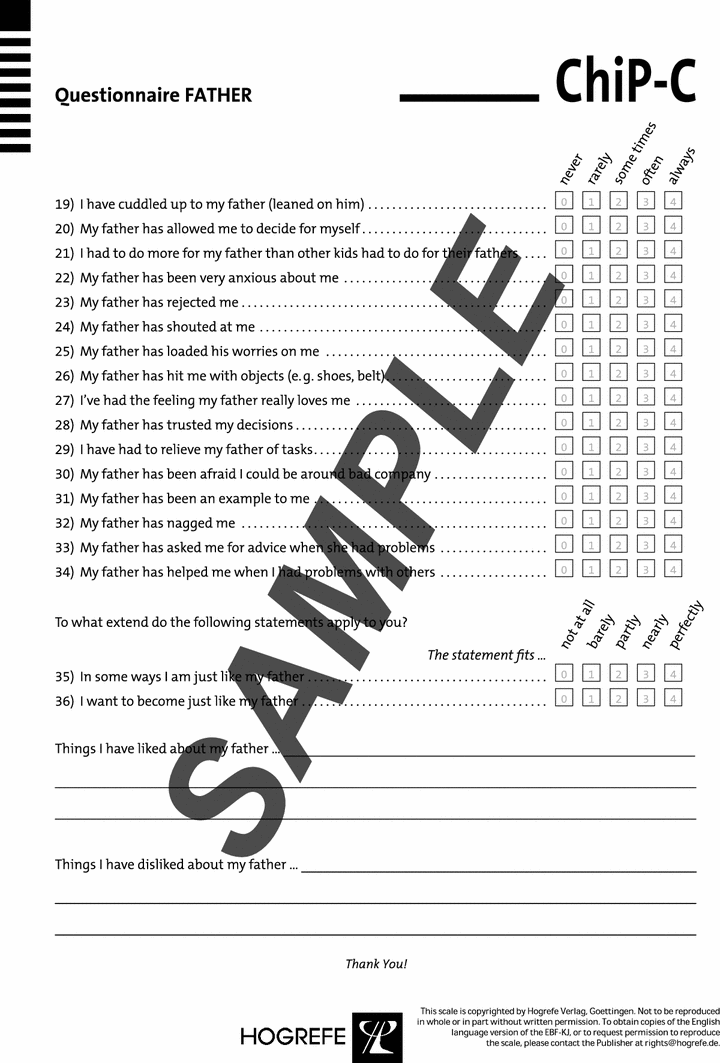



Assessing The Quality Of The Parent Child Relationship Validity And Reliability Of The Child Parent Relationship Test Chip C Springerlink



0 件のコメント:
コメントを投稿